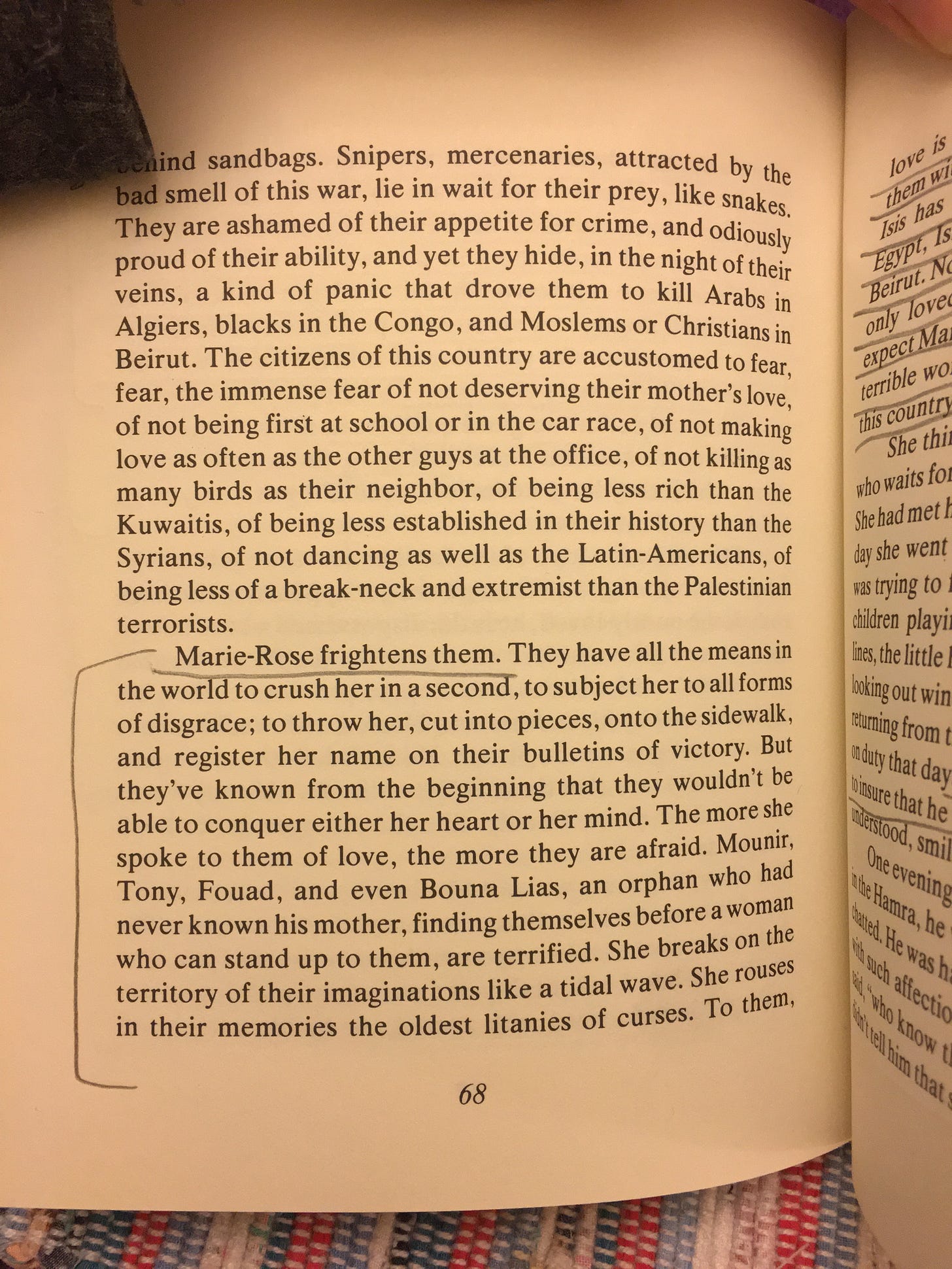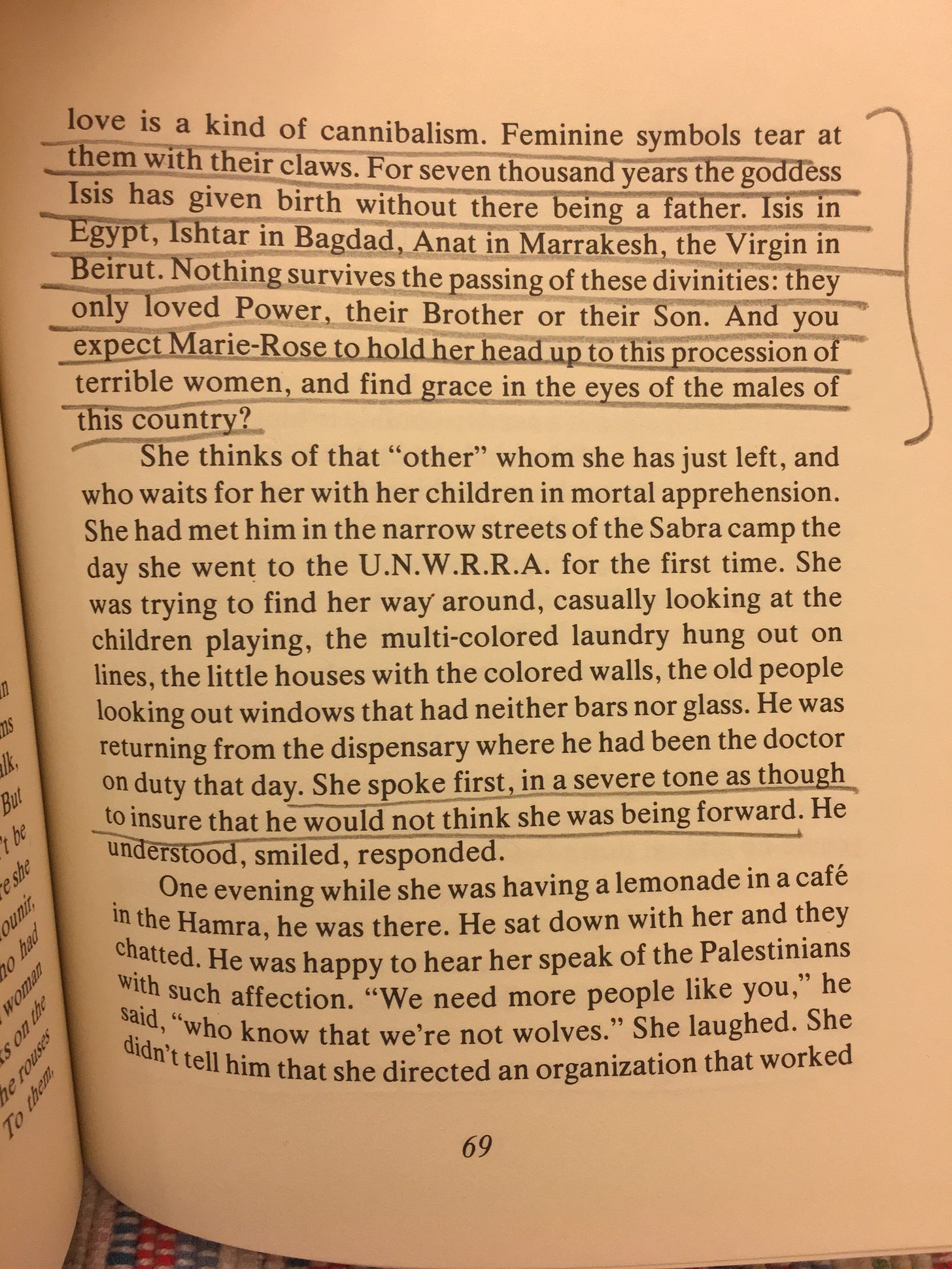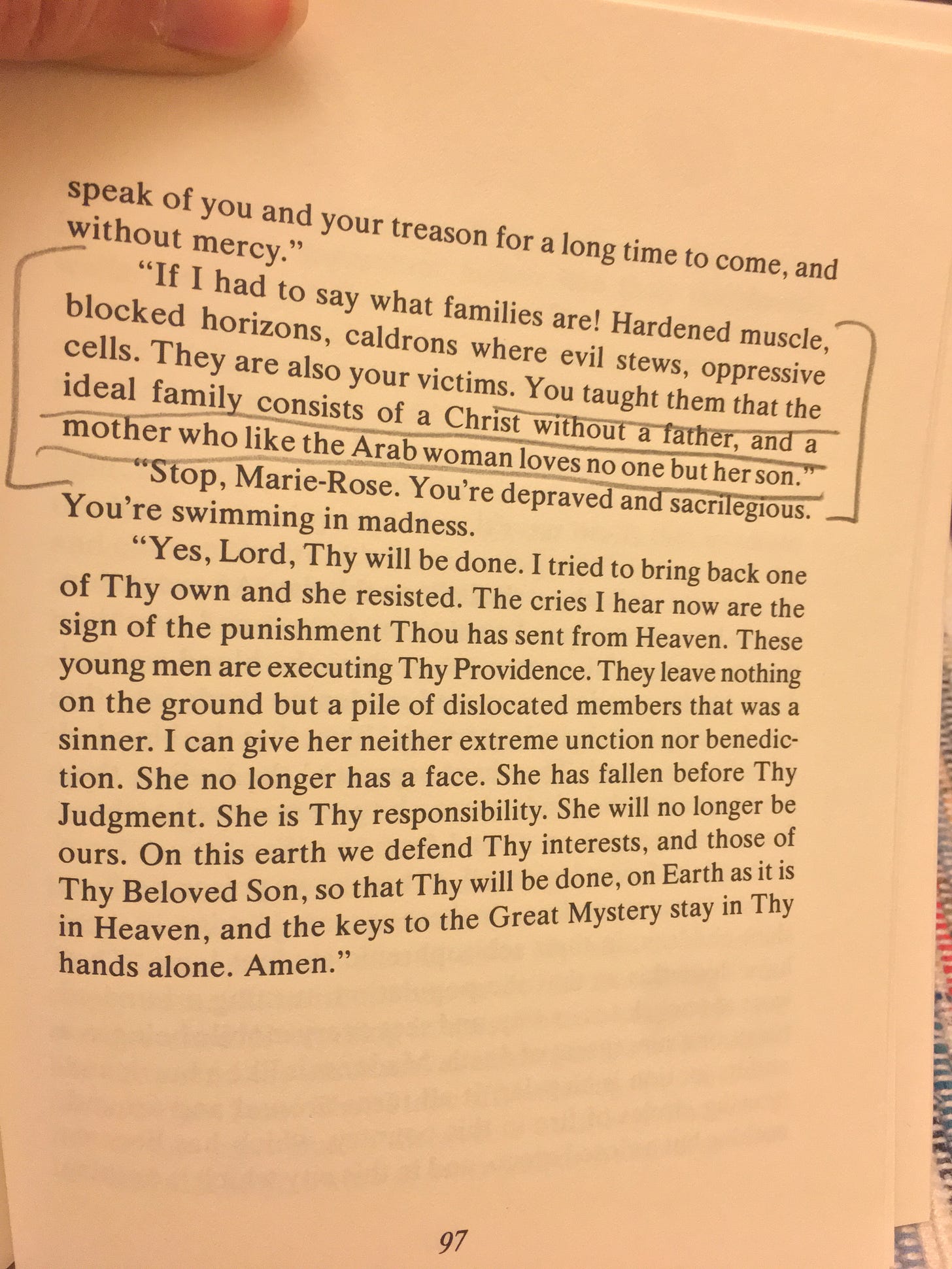Sitt Marie Rose by Etel Adnan (Translated by Georgina Kleege)
Patriarchy, toxic masculinity, xenophobia, war: Etel Adnan’s novel lays all bare. This is a short and righteously furious read; short but massive and searing.
Sitt Marie Rose was the first novel written about the Lebanese civil war (1975-1990). Shortly before I read this I saw one of the late Etel Adnan’s paintings at a glorious exhibit of abstract art from North Africa and South West Asia. To see the art of the then 94-year-old Adnan and then to read a novel she wrote early in the arc of her writing was to appreciate her incredible breadth and range. The exhibit also made clear that Adnan was a lesbian and mentioned her partner, Simone Fattal, who she met in 1972 and with whom she lived until her death. It was good to see two older queer women from the region whose sexual orientation and love for each other was clear and celebrated.
The eponymous Marie Rose - based on Syrian social worker Marie Rose Boulos, who was killed by a Christian militia - is a Christian woman who “crossed enemy lines” during the civil war. She is an activist and teacher who is abducted, put on “trial”, tortured and executed by a Christian militia - all in front of the deaf children at a school where she volunteers.
To talk about her “crime” would be to act as if war in and of itself were not the ultimate crime; the back and forth between Marie Rose and her captors/interrogators/tormentors is an indictment of the savagery of patriarchy and toxic masculinity.
Marie Rose must be “punished” for daring to cross over to the other side, to the Muslim and Palestinian areas of Beirut where the school for the children is, where she volunteers for the “enemy” in a Palestinian refugee camp, and for having a lover who was a Palestinian doctor in the camp.
Who is a woman allowed to love and who owns her loyalty? The group, the tribe, the religion: Adnan puts all those on trial. I've included some passages I underlined in a fury of my own about patriarchy, women, internalized misogyny, xenophobia, and how toxic masculinity so easily recruits and pushes men to horrific violence.
This is why it’s important that women, queer people, writers who are not cisgender heterosexual men write about war.






